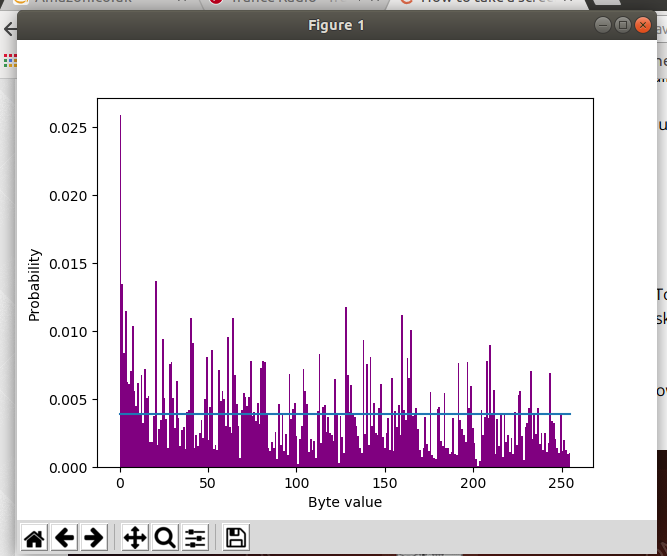A comment was made to me saying the following in relation to Kolmogorov complexity:-
You're not the first to think non-computability = impractical or even useless. But it can be useful. In particular to random, "non-algorithmic" data.
I now have a physical box on my bench that outputs perfectly random bytes with the following distribution:-
I'm trying to estimate the entropy rate of this box, and the problem is that these bytes are highly correlated. Very highly. I can't stress that enough. They are not independent nor identically distributed and arrive in blocks of 20,000ish bytes but that length varies randomly too.
How can Mr. Kolmogorov be useful to me with measuring this "non-algorithmic" data?
How to practically measure entropy of a file? has not yielded a practical answer so far.

